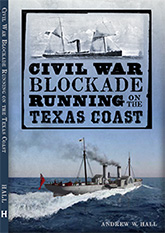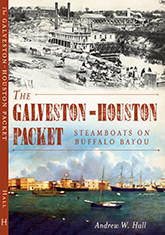End of the Southern Strategy?
 Politico has the story:
Politico has the story:
Haley Barbour, the Mississippi governor and likely 2012 Republican presidential aspirant, has recently made a series of missteps involving race and the Civil Rights Movement. He seemed unclear about basic historical points.
But he has now made a forthright declaration about the events swirling around what some Southerners still call the War of Northern Aggression. “Slavery was the primary, central, cause of secession,” Barbour told me Friday. “The Civil War was necessary to bring about the abolition of slavery,” he continued. “Abolishing slavery was morally imperative and necessary, and it’s regrettable that it took the Civil War to do it. But it did.”
Now, saying slavery was the cause of the South’s Lost Cause hardly qualifies as breaking news — it sounds more like “olds.” But for a Republican governor of Mississippi to say what most Americans consider obvious truth is news. Big news.
Given that Barbour has managed over the last few months to step directly from cow pie to cow pie on the issue of the South and race, it’s interesting to see him make a statement that is both explicit and succinct, and seemingly not open to nuance or backpedaling. I don’t think this statement will help him much on the national scene, but we’ll see. He’s already catching hell from in some quarters over his statement that he’d veto a license plate honoring Nathan Bedford Forrest; this won’t help.
Update: That didn’t take long. The League of the South has branded Barbour a “quisling” for this statement, which it further described as “despicable.”
____________________
Related
12 Responses
Subscribe to comments with RSS.






Barbour is wrong. It did not take a Civil War to end slavery, nor the did war start about slavery.
It took a Civil War to stop the SPREAD of slavery, and the war started because of the Southern leaders maniacal, obsessive, and violent attempts to SPREAD slavery.
There is a huge difference. Barbour is at least admitting what is politically correct, in some circles, but there was never a war started in this country to remove slavery, or protect slavery.
World War 2 didn’t start out with America trying to end the German death camps, or the Japanese domination of Asia — but that is what happened. FDR didn’t attack Japan to punish them for the rape of Nanking. But guess what? The Japanese couldnt rape any country after the war they started was fought.
Like wise, the Allies didn’t fight the war to stop Hitler from killing more Jews, but that is what happened.
The North didn’t go to war to end slavery in the South. It went to put down the violent rebellion that was underway.
The Southern leaders said it was about the SPREAD of slavery over and over. From their own headlines, from their own pulpits, from their own documents, from their own Ultimatums, from their own speeches. SPREAD slavery. They said it bluntly, repeatedly, in threats, promises of war. They said it also in euphamistic double talk. They said it every which way.
After they lost, however, they dropped that “spread slavery or perish” talk. As we say now “they walked that back” Until today, in our politically correct educations system, you won’t find (at least I didn’t) a single clear sentence, much less emphasis, that the violent attempts to spread slavery was even an issue, much less THE issue.
It’s not politically correct now to even whisper what the Southern leaders shouted from the rooftops at the time.
Barbour has come about as far as anyone — in his position, but he’s not accurate. The Southern leaders started the war to SPREAD slavery — from the Southern Ultimatums, to Davis explaining the “intolerable grievance” to Toombs shouting “EXPAND OR PERIS.
Lincoln was not going to let the South SPREAD slavery — but like the governor of Florida wrote at the time ” just stopping the spread of slavery is like burning us to death slowly :
It was about the spread of slavery. Like a bully who gets beat up when he tries to take lunch money, he runs home to momma and cries about the kid at school who beat him up. He “forgets” to tell him momma he was pounding the kid for his lunch money.
Essentiallly, we have a history of the Civil War, written by the momma of the bully.
Mark,
I think Barbour is correct on the essentials.
He says that “Slavery was the primary, central, cause of secession.” I think historians almost universally agree on that.
He doesn’t talk about the Unites States’ motivation, which were to preserve the Union. Or if he did, it’s not in the published article from Politico.
When he says that “Abolishing slavery was morally imperative and necessary, and it’s regrettable that it took the Civil War to do it. But it did,” that is correct.
His statement that “The Civil War was necessary to bring about the abolition of slavery” is being debated. Even so, very few doubt that slavery, especially in the Deep South, would have ended even as early as 1880. And even if it had ended, would that have been accompanied by the 13th, 14th, and 15th Amendments, which institutionalized and Constitutionally guaranteed certain rights to the freedmen (and all Americans)? I think that’s doubtful.
I don’t look to Barbour to give us a detailed, compelling, or substantive narrative concerning war causation. I think what he said to Politico is, at the least, a huge step in the right direction. For those of us who are deeply interested in the War, yes he could have said a lot more, or have been more historically “accurate.” But his statements are pointed to the 95% of people who don’t care about the Civil War, but want to be sure Barbour is not some Southern extremist.
****
Concerning the politics: as a favorite son of the South, I don’t see how this hurts him in the long run. By the time the primaries start, this will be a forgotten blip on the radar screen. I just can’t see white Southern voters, or any group of Republican voters, rejecting him because of his “stance” on Civil War causality. And if asked, all the other candidates will say the same thing Barbour is here; I doubt a pro-Confederate secession candidate will emerge from the GOP pack as the election campaign starts in earnest.
This seems right to me. I doubt he has much of a shot regardless on the national scene — he looks and sounds too much like Boss Hogg from the Dukes of Hazzard, poor man, and Mississippi actually is the punch line of more jokes than I can remember, fairly or not — but saying this only hurts him among a very small, but very loud and shrill, subset of white Southerners whose priorities are (1) absolute and unyielding fealty to the Confederacy in the past, and (2) commitment to secession and nullification in the present, and (3) reflexive opposition to anything that smacks of religious or ethnic pluralism. Barbour never was those things, nor any other candidate any major party would take seriously.
Let me try and understand this – someone says the civil war was about slavery and some people who live in this century called ” Barbour a “quisling” for this statement”? OK, I can’t use any term for these loons but that are either insane or … well, I won’t use that term since I said I would not but these guys sure wouldn’t have taken America’s side in WWII, thats for sure. To say such things in this day and age is crazy but this makes beyond the pale look almost sane. We have americans that believe these utter lie’s? I just can’t wrap my mind around so ridiculous an idea.
well, they EXIST in this century, but, mentally, they LIVE in the mid 19th
I’m both surprised and pleased. While the Civil War was far from only about slavery; slavery was a large part of it. And too, as Mark says; the spreading of slavery. Among the likely reasons for wanting slavery spread to more states, was for slavery states to maintain politically, a numerical balance parity with non-slave states?
When our U.S. Constitution was initially drafted, the issue of slavery was left for final settlement at some future time. Post Civil War, the lesser issue of equal racial opportunity economically and politically; was left for future settlement; then, I expect many did not see the later legalized segregation retrenchment.
In the 1950’s, my Southern parents were hardly Liberals, but they both did believe in the simple fair treatment of others, regardless of race. This in contrast to their parents attitudes.
My father said his father called all adult black males “Sam” (possibly, possibly not; as in “little black Sambo”?). His wife assured me that it had “scientifically” been proven that all blacks had skulls three-inches thick, and if you had to hit one in the head with a 2×4 to get their attention, you could not hurt them. On-the-other-hand, three grandparents(the above included) considered the KKK “white trash”, and two considered a local merchant that used big “balloon” final-installment payments with blacks for appliance time-purchases, as disgusting. Non-full final payment of the appliance, meant the item could be recovered to be sold again.
These attitudes aside; my grandparents were better than average folks, and with many qualities. Add these same then racial attitudes to bad, mean white people; me, had I been “colored” then; I’d be “one dead nigger”.
Just before his death in the early 1970’s, I visited an old uncle at an old folks home in Wilmington, N.C. As a youth at the turn of the century (1900), he’d spent a summer with a branch of the family that had removed to Mississippi circa the 1830’s. I asked if the older ones there (females) ever spoke of their Civil War era youths? He told me Joshua Jr. of Natchez had wed a widow Mrs. Johnson from North Carolina, who inherited “Ione” plantation, New Carthage, Tensus Parish, La. That when still single in Natchez, Jeff Davis would send slaves with a rowboat across the river to row Josh’ back for dinner with the Davis family. Josh’ Jr. and Mr. Johnson had four sons; two became Louisiana Confederate cavalry officers.
The Union gunboat Navy would marshal for the attack on Natchez off the “Ione” dock and warehouse where Confederate government cotton bales were stored. A monitor officer asked Josh’ if it was his cotton or the enemy government’s in his warehouse? If his, they would not burn it; if it was hostile government’s cotton asset, it was to be destroyed; I suspect was the implied intent ?
The Union monitor officer said they found Josh’ lied, saying it was his cotton to save it. The warehouse burnt. The War of the Rebellion navy records, I think said; they were given three hours to place plantation house furniture, cloths, and records on a barge; then the big house was burnt also.
Back to old uncle “W” in the 1970’s Wilmington old folks home. He said the old Mississippi kinswomen told him how they as girls, boarded the barge before it was cast adrift. The family begging that their home not be burnt, and the Union officers promised it would no be burnt. But as the barge drifted below the first river bend of tall Long Leaf Pine; above the pine, the girls saw the black smoke rising into the sky.
That may be history; but I witnessed then a moment of near spiritual Sainthood: as old uncle “W” drifted back into the present again from long-gone memories of his once youthful Mississippi summer visit; of hearing once Civil War young girl’s memoirs recalled again in their old age: drool ran from my double-uncle’s mouth, down his face.
Earlier, when I’d entered the big room of perhaps eight beds, uncle “W” and another old white man had the two window beds. In a dark back-corner, the one other human was an old black man. Possibly in his youth, he’d once known old ex-slaves? Surely he had known, experienced, legal segregation: then just ended. He’d tried to act is if unaware of my old uncle and the other old man, and of my then middle-age self; we three whites drawn together near the window. But behind me, as we whites talked of long-gone olden times; my old kinsmen using the term “nigger”, and speaking as if the old black did not exist there, then. I noticed the old black in the dark, still beds back, draw a bed closer to quietly listen, un-noticed. In earlier, other old folks homes; I’d noticed other elders, seemingly lonely without their own kin, do the same; drawing near to un-noticed; to hear the warmth of other humans sharing words, sharing thoughts. I stopped, asking the old black to join us; so he’d hear better. He came a bed closer, yet stayed a bed back; part of our little world, yet apart of it too. As in the bigger Southern world, he’d lived the black man,s life, amongst white men; part of their world, yet apart from their world.
Uncle “W” ceased his tale, drool dripping off his chin, onto his gown. The old black was there, cleaning the old white’s foul drippings from the white’s face, from the corners of an ancient mouth; a mouth but moments before, speaking of “niggers”; not so much with hate, but more simply because that is–was; what “they” were called.
I called it seeing, a semi-Saint.
That’s a really remarkable reminiscence of “W.” I’m sure it was difficult for him to adjust to the monumental changes he’d witnessed in his life. But doing so is an obligation we all have, I think, as members of the larger society.
It does sometimes seem to me that those who romanticize the antebellum South must be willfully blind to those practices like you describe that continued for generations after the war, that are (in many cases) within living memory. Folks who claim to know the beneficent minds and intent of their own ancestors who they not only did not know, but never met anyone who did, while at the same time putting out of their minds the experiences of men and women still living today as being irrelevant, or completely disconnected from, the larger Southern culture they claim to embrace. This is not to slam the South universally, but to point out that it all comes together, as a whole, the good with the bad. The South may be the home of Jazz, but it’s also the home of Jim Crow; it may have produced Faulkner and Lead Belly, but also Bull Connor and Orval Faubus.
Finally, you wrote:
That sounds correct. Personal property was, at least in principle, off-limits to seizure. (No, I don’t need to hear about Sherman again, thankyouverymuch.) Cotton assigned to the C.S. government, though, was forfeit and liable to seizure or destruction as government property. Because there was so little hard currency in circulation, the C.S. government accepted cotton in lieu of payment for taxes and other things. Very often this cotton never left the plantation or a local government warehouse — with the blockade, where would it go anyway? — and was simply marked as having been transferred. So by the latter part of the war, there was cotton scattered ALL OVER the South, — two bales here, a hundred there — officially consigned to the C.S., and so subject to seizure by the Federals. The author Ambrose Bierce, who had been a line and staff officer during the war, spent several month after the conflict in Selma, Alabama, working as a Treasury Department agent, trying to locate and seize this cotton, which the locals did their best to hide and reclaim as their own. He later chronicled this period in an essay, “Way Down in Alabam'”.
Isn’t it strange – all the war dead but what do people remember most clearly and are most bitter about? Property (house in this case0 and money (cotton in this case)- when these are taken away from someone, the people recall it in great detail and it remains with them for life even into old age but of family members lost? Oh, him, yeah, he died at such and such battle and thats about it. Machiaelli would have been so proud – I guess this explains a lot of the South post civil war.
I have a working theory that, to some extent, people have a really hard time putting their own loss or hardship in perspective to others. If all you personally lost was a lot of money in the war, up to a point that’s a horrible experience. It’s not really anything compared to the mother who loses three sons in the war, but if you don’t have that point of reference, losing money or property is pretty bad.
The difference is obvious to a third party, but not necessarily to those experiencing it first-hand, who have to make an effort to see that loss as others would. In a much different setting, we discovered that after going through hurricane Ike — some folks would wail about how awful it was, everything they lost, the hardship of it all, who’d actually suffered very little real damage or loss. Those folks didn’t get much sympathy from other folks, who literally lost everything they owned except for what would fit in a couple of plastic garbage bags.
Don’t know if any of that makes sense.
Excellent set of points and I think that what you say is correct for most Southerners (and my generalized statement about Southern losses is quite wrong about the vast majority of people who lost loved ones.)
After reading your explanation, I realized that almost all people who lost loved ones (both North and South), were the poor who, frankly, had little property/cash to lose, anyway. That, added to the fact that Union forces went out of their way to avoid further hurting the poor, tended to separated those who lost loved ones vs. those who lost mostly property – houses, slaves and cotton. Yet the civil war (most especially for the South) was a poor mans fight and a rich man’s cause. Makes sense that monetary issues would be most connected to those better off – hence could read/write and had assess to publishers, vs. those who did the fight/dying and whose family’s were poor, lacked education nor did most people want to hear their stories – this would bias the data, I would think.
Haley Barbour said what?
Sounds more like a Barbour-o-tron, manufactured by the liberal industrial complex, funded by DARPA, cleverly deployed by the President’s secular Chicago machine. The real Haley couldn’t possibly have said that.
Unless he learned to count.
“The love of money (and property?) is the root of all evil”. Timothy